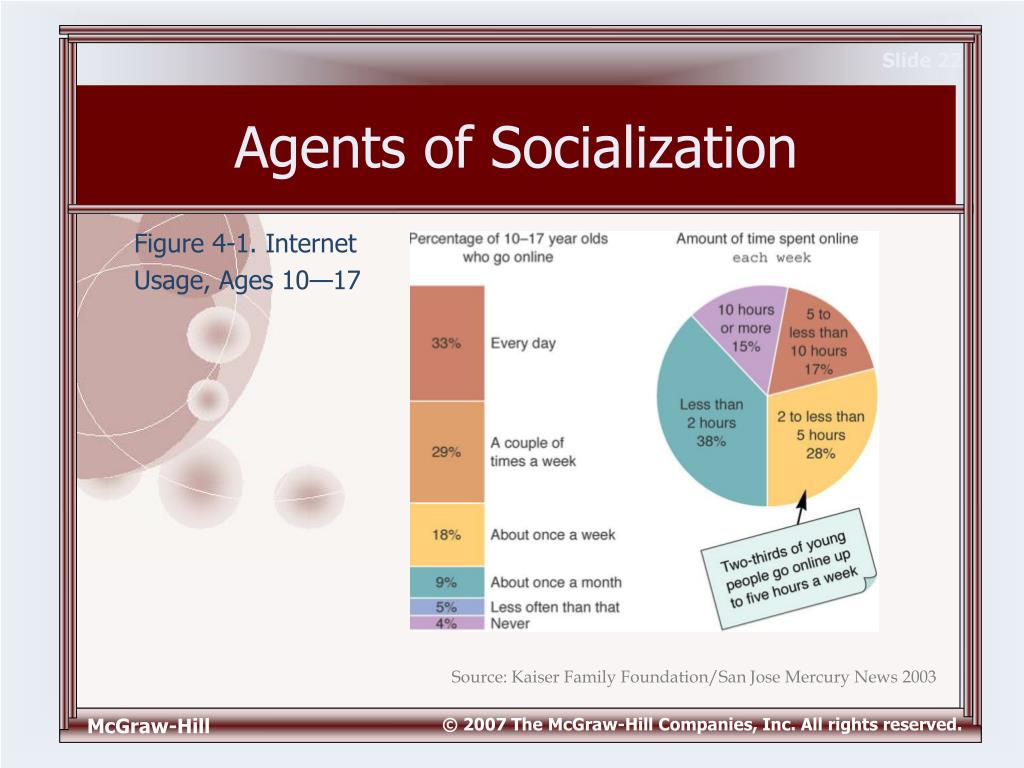Imagine a child, just beginning to grasp the world around them. They mimic the sounds their parents make, learn to share toys, and understand the basic rules of polite conversation. These seemingly simple actions are the building blocks of socialization, and the people, places, and experiences that facilitate this process are known as socialization agents. We often think of parents as the primary agents of socialization, but the truth is far more complex. Every interaction, every piece of information we encounter, plays a role in shaping our values, beliefs, and behaviors.

Image: www.pinterest.ph
Throughout our lives, we are constantly being socialized, learning the unwritten rules and expectations of our society. From our earliest years, we are immersed in a complex web of influences that shape our understanding of the world and prepare us for adulthood. This article delves into the fascinating world of socialization agents, exploring their diverse nature and the profound impact they have on our lives.
Exploring the Diverse World of Socialization Agents
Socialization agents are the individuals, groups, and institutions that influence our social development. They can be formal or informal, intentional or unintentional, and their impact can be both positive and negative. Understanding the various types of socialization agents is crucial to grasp the complexities of social influence.
Primary Socialization Agents: The Foundations of Our Social Identity
Primary socialization agents are the individuals who have the most significant and enduring impact on our initial development. These include:
- Family: The family is often considered the primary socialization agent, providing children with their first experiences of love, discipline, and social interaction. They instill values, beliefs, and behaviors that shape a child’s identity.
- Friends: As children grow, peer groups become increasingly important. Friends provide a space for exploration, experimentation, and the development of social skills. Peer pressure can be a powerful force, both positive and negative.
Secondary Socialization Agents: Expanding Our Social Horizons
Secondary socialization agents play a significant role in shaping individuals throughout their lives. These agents, often more formal and institutionalized, include:
- Education: Schools, universities, and other educational institutions transmit knowledge, skills, and values. They provide structured environments for social interaction and learning, shaping perspectives and preparing individuals for their roles in society.
- Religion: Religious institutions offer moral guidance, spiritual support, and a sense of community. They often influence personal values, ethical beliefs, and even dietary practices.
- Media: Mass media, including television, movies, social media, and the internet, plays a significant role in shaping our understanding of the world, our values, and our consumption patterns.
- Workplace: The workplace provides opportunities for professional development, social interaction, and learning new norms and rules. It also shapes attitudes towards work, authority, and colleagues.

Image: www.slideserve.com
The Interplay of Socialization Agents
It’s essential to understand that socialization agents don’t operate in isolation. They interact and influence each other, creating a complex web of social influences. The messages we receive from different agents may be congruent or contradictory, leading to negotiations and adjustments in our understanding of the world. For example, a child might learn about kindness and compassion at home but witness aggression and violence on television. This conflict between socialization agents can shape how individuals navigate their social environment.
The Evolving Landscape of Socialization: Embracing the Digital Age
The digital age has profoundly impacted socialization, introducing new agents and changing the dynamics of existing ones. Social media platforms have become powerful socialization agents, shaping our identities, influencing our opinions, and creating new communities.
The online world offers a vast array of information, entertainment, and social connection, while also posing challenges related to privacy, misinformation, and cyberbullying. Understanding the complexities of online socialization is essential for navigating the digital world responsibly.
Navigating Socialization: Tips for Effective and Balanced Development
Recognizing the diverse nature of socialization agents allows us to develop strategies for our own growth and navigate social influences effectively. Here are some key tips:
- Be critical of information: Evaluate information from various sources, being mindful of biases, agendas, and the potential for misinformation.
- Seek diverse perspectives: Surround yourself with people from different backgrounds and viewpoints. This expands your understanding and challenges your own assumptions.
- Develop media literacy: Understand how media messages are constructed and how they can influence your thinking and behaviour.
- Prioritize healthy relationships: Surround yourself with supportive, positive, and respectful individuals who contribute to your well-being.
- Practice self-reflection: Regularly evaluate your beliefs and values, being open to questioning and adjusting your understanding.
By embracing a critical and thoughtful approach to socialization, we can ensure that our development is guided by a balanced understanding of the world and its complexities.
FAQs about Socialization Agents
Q: Can socialization agents be negative?
Yes, socialization agents can have both positive and negative influences. For example, exposure to violence in the media can contribute to aggressive behaviour, while a supportive family environment can foster resilience.
Q: How can I minimize the negative impact of socialization agents?
It is important to remember that you have agency and control over your decisions and actions. Develop a critical thinking mindset, actively seek diverse perspectives, and prioritize relationships that support your well-being.
Q: What are some examples of socialization agents in the digital age?
Social media platforms like Instagram, TikTok, and Facebook are significant socialization agents in the digital age. They shape our identities, influence our opinions, and provide spaces for online communities.
What Is A Socialization Agent
Concluding Thoughts: Embrace the Journey of Socialization
Socialization is an ongoing process, and understanding the various agents that influence our development is crucial for navigating the complexities of social life. By recognizing the diverse forces that shape our values, beliefs, and behaviours, we can develop a more informed and balanced perspective on the world. Are you interested in learning more about specific socialization agents and their impact on different aspects of your life?






